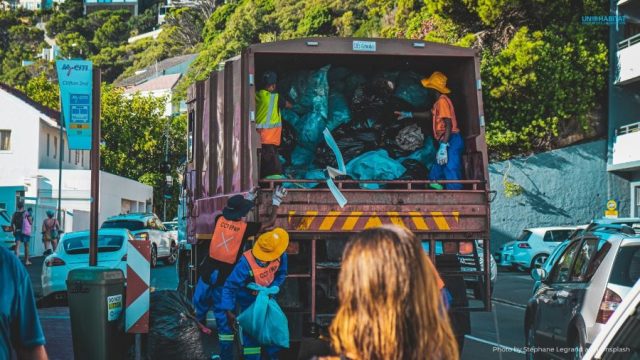
…The meeting under the aegis of the ACCP was held to exchange knowledge and experiences and create partnerships with people who share the same challenges
WED, 03 AUG, 2022-theGBJournal| A total of 566 participants drawn from 48 countries across the globe took part in a virtual exchange at which recommendations were made on achieving clean cities and shifting towards a circular economy on the African continent.
The meeting under the aegis of the African Clean Cities Programme (ACCP) was held to exchange knowledge and experiences and create partnerships with people who share the same challenges in solid waste management in Africa.
The ACCP Assemblies are organised to share knowledge and experiences every three years in conjunction with TICAD (Tokyo International Conference on African Development).
After the first two meetings held in Rabat, Morocco 2018, and Yokohama, Japan, in 2019, the third Assembly hosted by Tunis took place on 25 – 29 July 2022, one month before TICAD 8, as a part of the preparation process.
The ACCP members captured the outcomes of activities laid out in the Yokohama Action Guidance adopted in the Second Assembly in 2019 and agreed on the ACCP activities in the coming three years.
Supported with the digital technologies and the new online format, participants actively discussed the challenges and exchanged knowledge and experience for improved solid waste management. A business matching platform was also set up to showcase the innovative circular economy solutions provided by private companies in Africa.
“Our meeting reflects the importance of shared responsibility in the effort to fight against environmental degradation,” said Najla Bouden, Prime Minister of Tunisia, who opened the Assembly, calling for more cities in Tunisia and Africa to join the platform. Tsuyoshi Yamaguchi, Minister of the Environment, Japan, spoke of the nexus between waste and climate and the vital role played by improved solid waste management in tackling plastic pollution, ensuring Japan’s commitment to continued support to ACCP.
Many best practices of waste data monitoring and action planning using Waste Wise Cities Tool, controlled landfill site management using the Fukuoka Method and awareness-raising activities were shared. Presenters introduced new opportunities for the solid waste management training programmes on the second and third days of the meeting.
“SDG indicator 11.6.1 baselining survey and action planning supported by UN-Habitat informed the governments and other stakeholders. This led to new funding mobilisation to various projects to tackle plastic pollution”, said Godfrey Nato, County Executive Committee Member of Mombasa County, Kenya, whose presentation provoked many questions from the other African participants.
Heidi Solba, founder of ‘Let’s Do It World’ from Estonia, introduced and called for action to join World Cleanup Day on 17 September 2022. “Even without a budget, you can create a partnership with the private sector or different embassies, making the event to work with community and people to clean your city, with joy”, she added.
Innovations and solutions on the ground were also shared by active participation by private sectors on the fourth day. “In the West, financing is done through the government through tenders. In Africa, this model doesn’t work.
For various reasons, African governments lack the financial capacity to adopt the Western model. Most waste collected is done by the private sector in Africa. The average gate fee to dump 1 ton of waste in the US is USD 50, while the average gate fee for the same amount of waste in Africa is one dollar”, Daniel Paffenholz, CEO of Taka Taka Solutions from Kenya, stated as he shared the reality of solid waste finance in Africa.
“Newly available data on SWM in the supply chain management can open the new financing such as carbon finance and plastic fund. We can’t underestimate the power of data,” noted Victor Boyle-Komolafe, Founder, GIVO, from Nigeria.
Donor communities also joined the Assembly, expressing their interest in deepening the partnership with the ACCP. “We are interested in developing meaningful projects in Africa, benefitting from UN tools and knowledge such as Waste Wise Cities Tool and SDG data”, mentioned Jonas Byström, Waste Management and Circular Economy Expert, European Investment Bank.
The Assembly closed with the adoption of Tunis Action Guidance, which dictates the activities of ACCP for the coming years until 2025, the year of TICAD 9.
Twitter-@theGBJournal| Facebook-The Government and Business Journal|email: gbj@govbusinessjournal.ng|govandbusinessj@gmail.com









